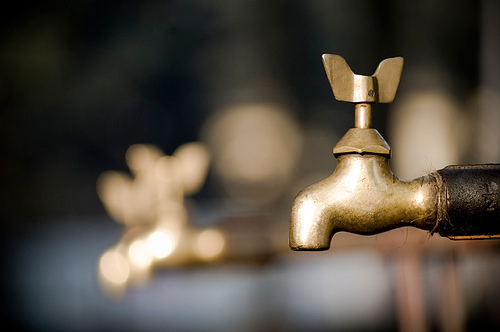18 October 2013
Article by Philip Donkersley, National Assembly for Wales Research Service
The Welsh Government is currently developing a draft Water Strategy for Wales for consultation before the end of 2013. The draft strategy will focus on: [caption id="attachment_892" align="alignright" width="300"] Photo by Ariful H Bhuiyan via Flickr. Licensed under the Creative Commons.[/caption]
Photo by Ariful H Bhuiyan via Flickr. Licensed under the Creative Commons.[/caption]
- Land use and the environment
- Water resource management and the value of water Water efficiency
- Future regulation of the water industry
- Affordability and metering
- Water and sewerage services: public and private
In preparation for publishing this draft strategy, the Welsh Government has held seven stakeholder workshops, each discussing different elements of water policy. In addition, the Welsh Government closed its Water Strategy for Wales - Strategic Environmental Assessment scoping document consultation on 11 October 2013. The assessment will consider the environmental and social impact of the water policies developed and is required under the Strategic Environmental Assessment Regulations (2004). Bad Debt Regulations The Welsh Government will be consulting on its Draft Bad Debt Regulations until 6 November. The cost of debt from non-payment of water bills is currently covered by all paying customers of the water company; adding approximately £20 per year to each bill. At present, the occupier of a property is liable for payment of water bills. The Welsh Government is concerned that some people do not pay their bills and that many water debtors are tenants. Its Draft Bad Debt Regulations therefore aim to assist the water industry to reduce this debt, to help lower bills, and contribute to its wider tackling poverty agenda. Social Tariff Guidance Earlier in 2013 the Welsh Government published its Social Tariff Guidance for water companies. The Social Tariff Guidance allows water companies to set up a cross-subsidy to help households who struggle to pay their water bills. Although the Welsh Government has not set an upper limit, it believes a reasonable level of cross subsidy should be up to 2.5% of a company’s average water and sewerage bill. The Welsh Government also expects water companies to consider measures to improve water affordability such as offering water efficiency advice, measures to improve the management and payment of bills and advice to households on opting for a meter to lower their bills The Welsh Government has stated that it will review this guidance after its new water strategy is published at the end of 2013. EEA assessment of cost recovery through water pricing In September 2013, the European Environment Agency (EEA) published a report on the assessment of cost recovery through water pricing, looking at water pricing in a number of European countries, including England and Wales. The research group found that citizens wasted around a third more water when they were not charged for the actual amount they used, and the EEA called for governments to include the full cost of water in charging, including environmental impacts.






